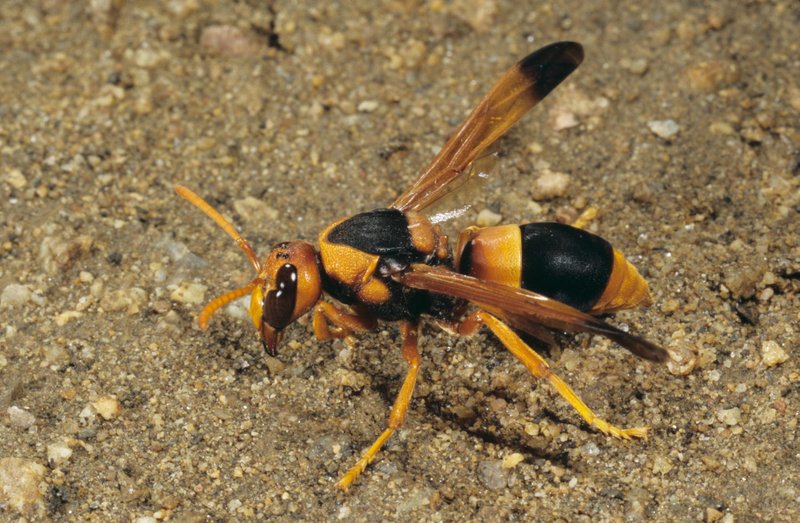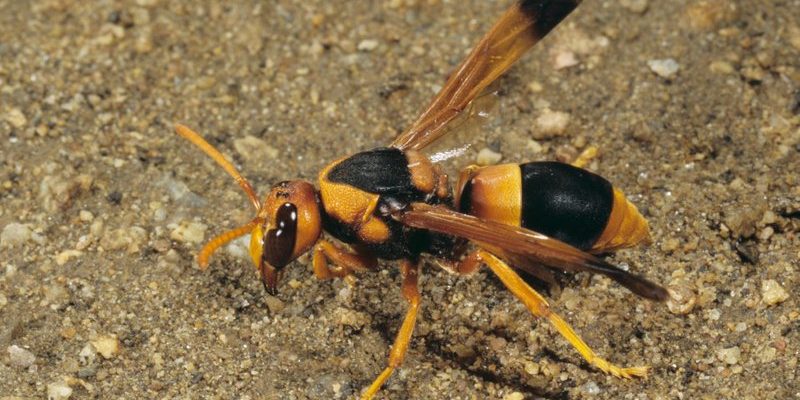
Let’s dive into the world of wasps. You might be wondering why researchers are so interested in them. Well, these insects help us understand a variety of topics, from evolution to social structures in the animal kingdom. Think of wasps as tiny, living clues to greater mysteries in nature, revealing how life operates on this planet.
The Role of Wasp Research in Ecology
Wasps are not just pestering nuisances; they serve as vital players in the ecosystem. They help control pest populations by preying on insects like caterpillars and aphids. This means they indirectly support agricultural health by reducing crop damage. Researchers study these interactions to grasp how ecosystems maintain balance.
Scientists often conduct field studies where they observe wasp behavior in natural habitats. This can involve tracking their hunting patterns or reproductive habits. By understanding wasps’ roles as predators, scientists can develop better pest management strategies that minimize the need for chemical pesticides. So, the next time you see a wasp, remember it might just be doing its part in keeping the environment healthy.
Social Structure of Wasps
Many wasp species exhibit complex social behaviors that piqued scientists’ curiosity. Some wasps live in colonies, similar to bees, while others are solitary. Researchers study these social structures to understand cooperation and competition in animal societies. For example, in social wasps like the paper wasp, individuals share responsibilities, from foraging for food to caring for the young.
Studying these dynamics gives insight into how social systems evolve and adapt. It’s like a real-life “Survivor” episode where every individual has a role to play, and success hinges on teamwork. Observations from these studies often translate to theories about human social behavior, making wasps interesting from both ecological and sociological perspectives.
Wasp Venom and Human Health
You might think, “Why would anyone want to study wasp venom?” Well, here’s the thing: wasp venom contains compounds that could lead to new medical treatments. Scientists are investigating the potential of these compounds to treat conditions like cancer and allergies.
In laboratories, researchers extract wasp venom and analyze its components. They’ve found that some of these compounds can target specific cells, sparking interest in developing new drugs. It’s a shining example of how a creature that might make you flinch could also hold keys to groundbreaking medical advancements.
Potential Therapeutic Uses
The potential therapeutic uses of wasp venom don’t stop at cancer treatment. Some studies suggest that these compounds may also help with pain relief. Imagine a world where the sting of a wasp could lead to a powerful painkiller. Scientists are at the beginning of this journey, but the implications are huge.
Furthermore, ongoing research aims to understand how these venom components interact with human cells. The goal is to harness their beneficial properties while minimizing any harmful side effects. This process involves a lot of trial and error, but each discovery brings us closer to new medical breakthroughs.
Evolutionary Studies of Wasps
Wasp studies also reveal a great deal about evolution. Scientists analyze wasp anatomy and genetics to understand how these insects have adapted over millions of years. For example, some wasps have developed unique morphologies—like long ovipositors for laying eggs in hard-to-reach places.
These observations allow researchers to construct evolutionary trees that map out relationships between different species. It’s like tracing your family genealogy, but in the insect world! By piecing together these evolutionary stories, scientists gain insights into how environmental changes can drive species evolution.
Climate Change and Its Impact
As climate change alters habitats, understanding how wasps adapt can provide clues about the future of many species. Scientists monitor populations in various environments, assessing how factors like temperature and food availability influence their survival.
This research is crucial; it helps predict how changes in climate could impact ecosystems at large. By studying wasps, scientists can better prepare for shifts that might affect biodiversity, agriculture, and even human health. It’s all interconnected, emphasizing the importance of each species—even those that make us a little uncomfortable.
Behavioral Studies and Communication
Wasp behavior is another area of intense study. How do wasps communicate with one another? Scientists observe their body language, pheromones, and even sounds. Understanding these communication methods provides insights not just into wasps’ survival but also enhances our knowledge of animal communication in general.
For instance, researchers found that certain wasps use chemical signals to alert others about threats. It’s a sophisticated warning system, almost like a smoke signal in the insect world. Observing these behaviors helps scientists to understand the cognitive abilities of insects better.
Real-World Applications of Behavioral Research
The findings from behavioral studies extend beyond just wasps. By understanding their communication strategies, researchers can apply similar principles to other social insects. This knowledge can aid in developing sustainable pest control methods that respect natural predator-prey relationships.
For example, scientists have been able to train certain wasps to recognize specific scents associated with pests. By using these trained wasps in agricultural settings, farmers can reduce reliance on harmful chemicals. It’s a win-win for nature and food production!
Studying wasps opens up a world of insights into ecology, human health, evolution, and behavior. These tiny, often misunderstood insects play significant roles that influence various aspects of life on Earth. From helping control pest populations to potentially paving the way for new medical treatments, wasps contribute to our understanding of nature in profound ways.
As research continues, we can expect to learn even more about these fascinating creatures. Understanding their complexities not only enriches our knowledge of the natural world, but it also highlights how deeply interconnected all life is. The next time you see a wasp buzzing around, remember: there’s a lot more than stings at play here!

